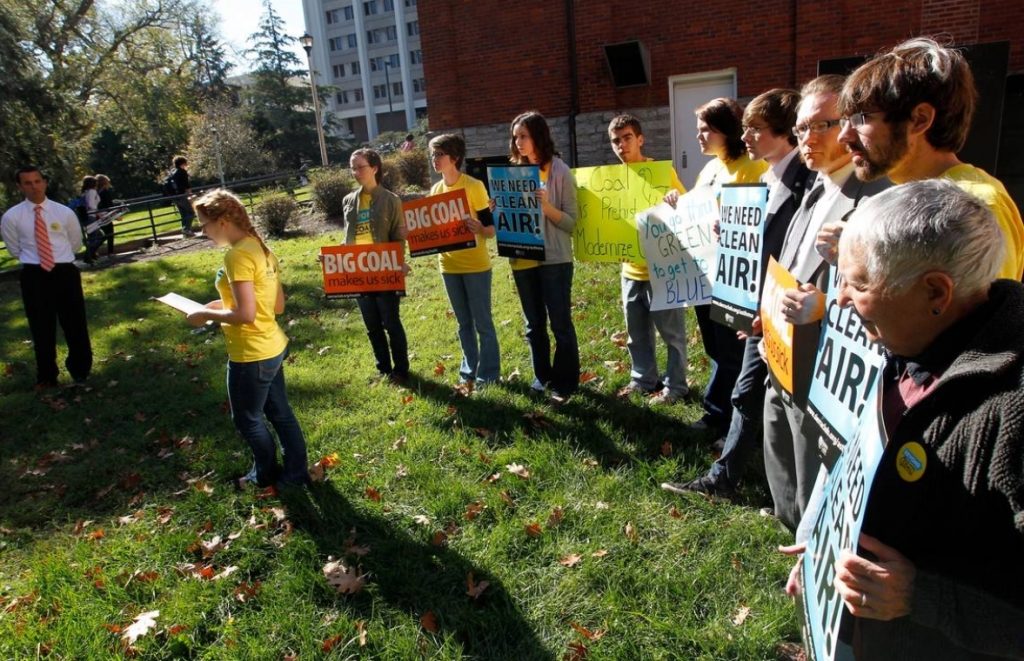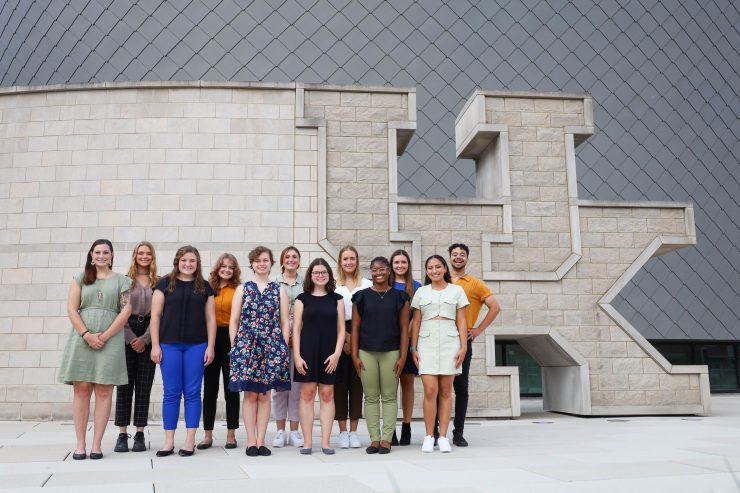As the commonwealth’s flagship university, the University of Kentucky is rising to the challenge of climate change by significantly reducing our emissions that worsen the effects of climate change. Our changing climate is creating challenges, not only worldwide, but also right here in Kentucky, where annual precipitation patterns and other facets of our climate are becoming more extreme and unpredictable. In fact, experts from UK, including several with the Cooperative Extension Service, have been studying the impacts of climate change for decades, and their research is helping farmers adapt to changing growing seasons and rainfall. UK faculty have also spent years researching and teaching about the impacts of climate change, in areas ranging from plant and soil science to geography.
The accelerating rate of climate change we’re experiencing right now is caused by gases that get trapped in the atmosphere and alter the climate. While this greenhouse effect has been a natural occurrence across geologic time, the disruption of historic weather patterns and increasing frequency of record breaking extremes are attributed to emissions generated by human activities, especially industrial processes associated with energy production, transportation, and food production.
At UK, these same activities underpin our ability to conduct research, teach students, provide life saving care, and support our community in the Bluegrass and beyond. Sustaining these mission critical activities while dramatically reducing their impact on the climate is an exciting and important challenge that we are fully embracing. Here are the cliffnotes on how we got to this point.

For years, students and campus leaders have been working to find ways to keep doing the awesome things we do and reduce our emissions so that we can also lead on climate change. In the early 2000s, there was a growing concern among student organizations about the side effects of Kentucky’s long history of leadership as an energy-producing economy.
When UK’s beloved research forest, Robinson Forest, was threatened with strip mining, student leaders and allies rose to the occasion by successfully advocating for protection of the forest AND more sustainable energy production and use on campus. Our students’ leadership on the issue encouraged UK’s administrative leadership to take several actions including the establishment of the President’s Sustainability Advisory Committee in 2009.

UK students continued to lead on the issue of climate, as they challenged campus stakeholders to acknowledge that human-caused climate change is a pressing issue and to set a high bar for emissions reductions. In 2016, President Capilouto signed an emissions reduction proposal from student leaders and the Advisory Committee, committing the university to reducing its emissions by 25% by 2025 and acknowledging that we should strive for climate neutral operations as soon as technically feasible.
Since 2016, experts across campus, including facilities staff, energy consultant partners, undergraduate and graduate students, and faculty have contributed to creative changes to everything from how we light our classrooms to how we heat and cool our buildings and beyond. Through the first years of this commitment, we’re on track, and we now have a group of campus community members continuing to dream up strategies to stay the course and set even more ambitious goals for the future.
Originally Published October 18th, 2021

Make your voice heard by those in power! Join a social movement or campaign that focuses on environmental activities or gets everyone talking about climate change action.




























I love hearing about students standing up for themselves and future generations. I hope the UK community continues to create positive change and we work together to make UK a more sustainable place.